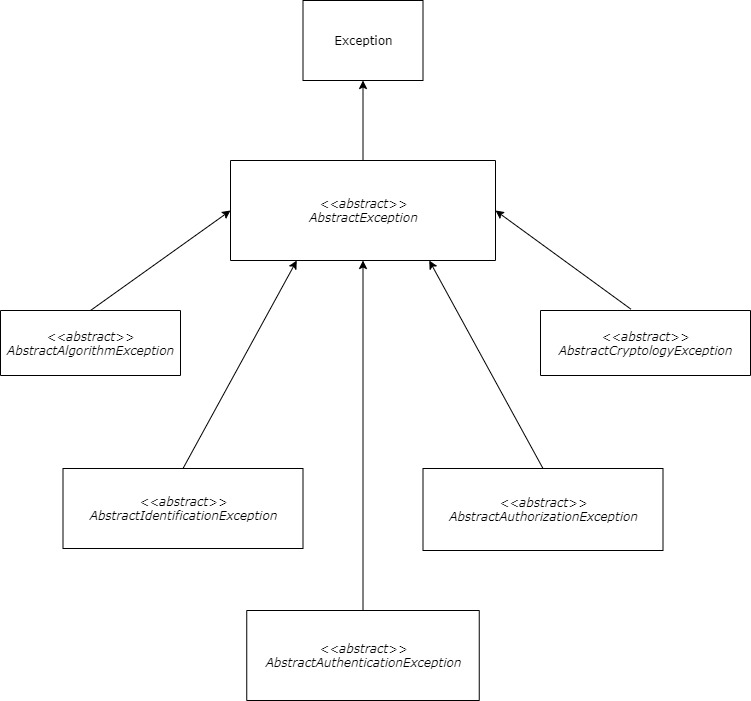Cryptographic Model Exceptions
The software framework supports custom exceptions at the developed cryptography model. They are needed for the existing component realizations and for the future ones to come. The developer can use them in the cryptographic context for marking process, protocol or other errors.
The CryptoMañana (CryptoManana) cryptography framework provides all available cryptographic
model exceptions at the \CryptoManana\Exceptions namespace. Here is a list of all custom error components:
AccessDeniedException- For marking access denied per attempt;AuthenticationFailureException- For marking authentication errors;AuthorizationFailureException- For marking authorization errors;BadPracticeException- For marking bad security practices;BotDetectedException- For marking users as bots;BreachAttemptException- For marking security breach attempts;CryptographyException- For marking cryptography errors;IdentificationFailureException- For marking identification errors;IncompatibleException- For marking backward incompatible usages;InsecureUsageException- For marking insecure usage cases;MaliciousPayloadException- For marking malicious payload requests;SessionExpiredException- For marking expired session errors;TokenExpiredException- For marking expired access token errors;UnsupportedException- For marking unsupported algorithms;WrongConfigurationException- For marking wrong configuration errors.
Each error object extends the AbstractException
base exception specification and is derived from the default PHP \Exception object. This type of exception object is
fully configurable before throwing (in contrast to the default one) and has an INTERNAL_CODE constant for the actual
framework error, that is said to the object’s code property. You can get the framework internal code via
the getFrameworkErrorCode() even if you decide to add a custom error code to the object. The following custom methods
are available:
getFrameworkErrorCode() // gets the internal error code
setMessage() // set a custom message
setCode() // set a custom code
setFile() // set a custom file name
setLine() // set a custom line
This type of component has 1 public constant available:
INTERNAL_CODE // the framework internal error code
Here is a simple example for the usage of this type of secure data service component:
use CryptoManana\Exceptions\CryptographyException;
$exception = new CryptographyException();
$exception->setCode(500)
->setMessage('Wrong key at server!')
->setLine(3)
->setFile(__FILE__);
echo 'Framework Error Code: ' . $exception->getFrameworkErrorCode() . '<br>';
echo 'Error Code: ' . $exception->getCode() . '<br>';
echo 'Error Message: ' . $exception->getMessage() . '<br>';
echo 'Error Line: ' . $exception->getLine() . '<br>';
echo 'Error File: ' . $exception->getFile() . '<br>';
echo 'Throwing it for testing purposes: ' . '<br>';
throw $exception;
The Object Hierarchy
The internal components’ hierarchy is visualized as a technical diagram and can be seen in Figure 1.

Figure 1: The framework exception components hierarchy.
For more information about the capabilities of the components, please see the technical
documentation for
\CryptoManana\Exceptions
namespace.